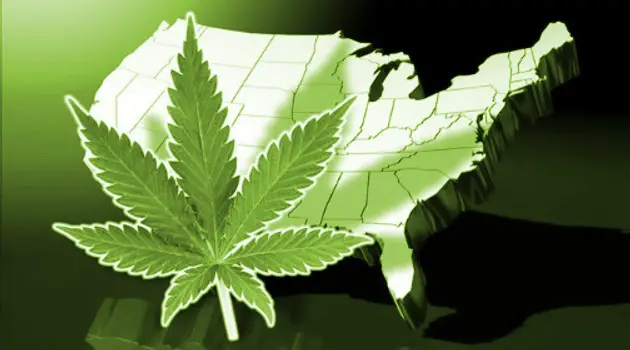Ok, im not trying to debate anyone but i dont know if everyone is aware that george soros is behind the push to legalize it. Its definitely not demonized anymore. However, rather than using at as medicine they appear to be encouraging the recreational use of high thc strains.

acdemocracy.org
Soros successfully used marijuana legalization campaigns to test his ability to reshape American society. It was his first successful venture of making the once unthinkable unacceptable and illegal, a thing of the past, turning Aldous Huxley’s Brave New World‘s “soma” distribution into reality.
George Soros’s first major effort to reshape America was undertaking the legitimization of illegal drug use, especially marijuana. Soros initially said his overarching goal was to promote informed discussion of drug policy. But debate and discussion are not his style and were not his objects. Instead, he used his resources to fund think-tanks, foundations, and public policy action groups that successfully muddled public opinion enough to change public laws, making illegal drug use legal.
Soros’s successful legalization efforts assuaged the social stigma of drug abuse and drove more Americans to regularly use and get addicted to marijuana. Soros claims that marijuana use and addiction will decline once this substance becomes legal, as will the illegal trade in this drug. But this prediction has not panned out.
On the contrary, the number of users and addicts, especially among the young, has grown rapidly in the U.S., Canada, and other countries that have legalized the use of “natural marijuana” as a drug. In the U.S., for example, in 2018, the number of young adults who reported regular use of marijuana rose to 11.8 million, and the number of teens in 8th and 10th grades who say they use it daily has increased as their perception that regular use of marijuana is risky is decreasing. It is decreasing because Soros’s successful legalization campaign has deliberately misled the public on hazards caused by “natural marijuana.”
Did you know the driving force behind the movement to legalize medical and recreational marijuana is a billionaire with financial ties to Big Pharma & Monsanto?

wakeup-world.com
Portrayed as a grassroots movement, you may not realize that the driving force behind legalization of both medical and recreational marijuana is none other than billionaire George Soros. Along with a cadre of other wealthy donors, Soros has spent at least $80 million in the quest of legalizing cannabis. Through his Foundation to Promote an Open Society, he has funneled donations to the Drug Policy Alliance — a non-profit organization with “the principal goal of ending the American “War on Drugs.”’ He’s also donates annually to the American Civil Liberties Union, an organization which funds marijuana legalization efforts, and gives to the Marijuana Policy Project, which supports state ballot measures.
George Soros appears to be a hero of the cannabis movement — helping states (and even an entire country) pass legislation for medical and recreational use. But he also has strong ties with the pharmaceutical industry and Monsanto as a major stock holder — the same chemical corporation and biotech giant that developed Agent Orange, DDT, PCBs, toxic pesticides, rBGH, Roundup Ready and genetically engineered Frankenfoods. While the widely circulated urban myth that Monsanto is currently developing genetically modified cannabis is false, if you dig a bit deeper, it turns out the corporation quietly conducts research projects on tetrahydrocannabinol (THC) found in marijuana for the apparent purpose of genetically modifying the plant at a future date.
“Cannabis” refers to the plant that is commonly called "marijuana." The two terms are often used interchangeably. However, "cannabis" is the historical name that has been used in the medical literature. While public sentiments towards marijuana have recently changed to the point where two states...

healthimpactnews.com
While recent state initiatives to legalize the recreational use of marijuana are often seen as a step in the right direction to make medical cannabis more available to those who need it, these new laws, and along with them new federal regulations, are in fact doing just the opposite in some cases, particularly in Washington State.
State level medical cannabis programs are being deterred and even being shut down by plans to legalize the recreational use of cannabis. In Washington State, a popular vote of the people approved the legalization of marijuana and the creation of a licensed system of growers, processors, and retailers. As originally intended, the new distribution system for recreational marijuana was to coexist with the system for growing and distribution of medical cannabis.
But as it turns out, the medical cannabis system is being folded into the newly approved system for legal marijuana sales. This new structure will have the effect of dismantling what had been an effective medical distribution system for medical cannabis in that state. The medical cannabis program was criticized for its loose regulation, even though the distribution network was working well to serve the needs of patients. Why did the state decide to merge the two systems?
The Seattle Times describes the motivation behind reforming the existing medical marijuana law.
“Lawmakers have worried that the largely unregulated medical system would undercut the taxed recreational industry established by Initiative 502. U.S. Justice Department officials have warned that the state’s medical pot status quo is untenable. … State Senator Ann Rivers has said she’s sympathetic to patients’ concerns, but she’s worried about what the federal government will do if the state doesn’t make the changes.21
The new law will reduce the amount of the drug that patients can possess or grow, eliminate collective gardens (which many dispensaries use), require medical users to register with the state, and mandate that both medical cannabis and recreational marijuana only be sold by the new licensed retailers.
Trusted dispensaries will be closed, they contend, and choices will diminish, with the varieties that marijuana medical users prefer squeezed off the shelves by more profitable recreational varieties grown for their greater, high-producing THC content, not for headache or nausea relief. In Seattle alone, about 200 dispensaries will have to close, replaced by 21 licensed retailers, and under current state regulations, employees in those shops will not be allowed to even discuss the medical value of the products for sale.










